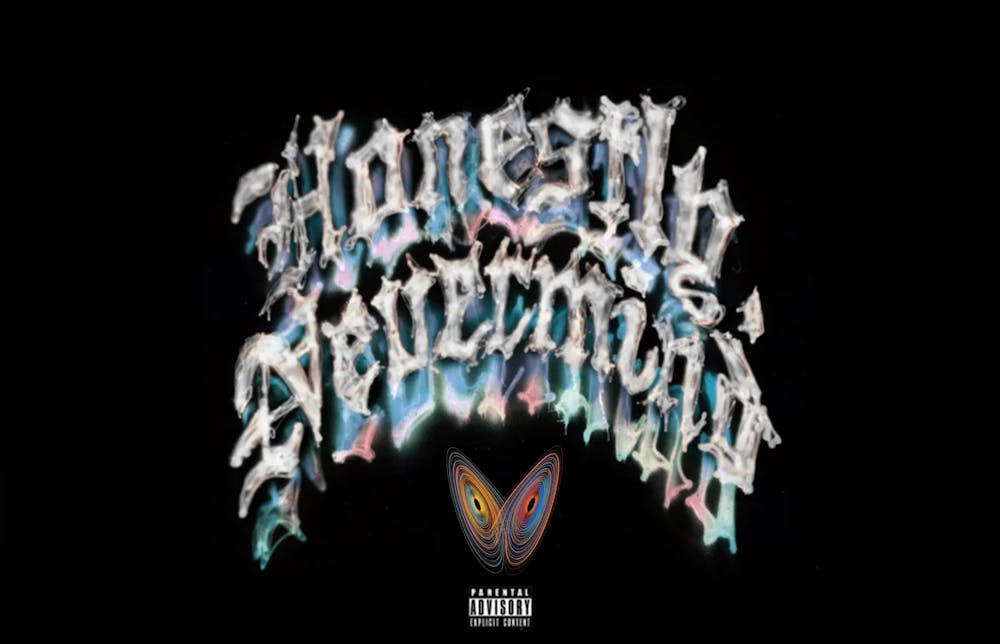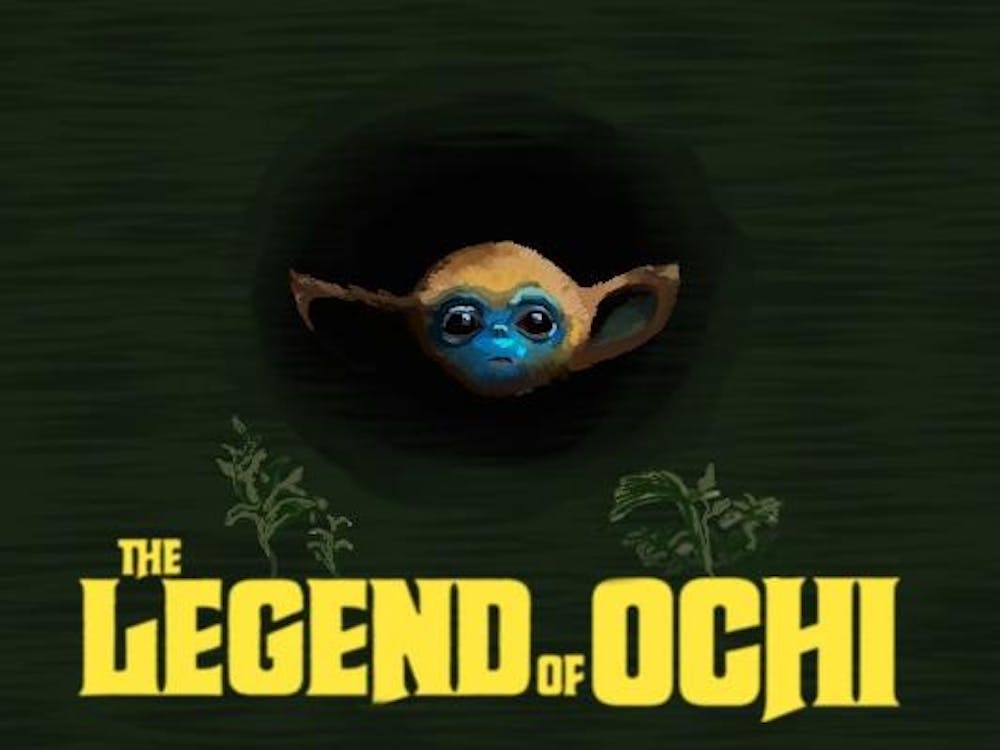Much like Billie Eilish, Drake likes to debut a new era in his discography with a dramatic makeover. Last summer, a selfie of the rapper's heart-embossed hairstyle sent ripples through social media, effectively leveraging self-caricature to tease his album “Certified Lover Boy”. During a March trip to the islands of Turks and Caicos, he unveiled braids, hinting at the Afro-Caribbean culture he would draw on for his next project.
“Honestly, Nevermind” polarized listeners within hours of dropping in June, as it marked the rapper’s first wholehearted leap into house music, a genre characterized by repetitive, pulsing drum rhythms suitable for nightclubs. Drake previously turned to South African house music for inspiration on 2017’s “More Life,” collaborating with R&B singer Jorja Smith and DJ Black Coffee to produce the club-ready track “Get It Together.” Five years later, Drake decided to spin the concept into a full-length project, re-enlisting Black Coffee, longtime producer Noah “40” Shebib and other industry wizards for the effort.
Longtime fans of Drake’s typical rap-R&B fusion felt “trolled” by the unannounced genre switch up, deeming the songs mall music. Others, especially reviewers and other artists, credited him for taking house music — a type of dance music typically reserved for the club — mainstream. With summer drawing to a close and the dust having settled, a fair assessment of “Honestly, Nevermind” lies somewhere in between these extremes, but not because it maintains an average quality throughout. Instead, the album is a lopsided experience, offering misconceived songs that vindicate its fierce critics in its first half before revealing a second act of pleasant, occasionally praiseworthy performances from Drake.
Beyond nose diving into an atypical genre for a rap star, the project breaks ground in ways Drake probably didn’t intend — namely, by registering all-time lows in his discography. Take opener “Falling Back,” the worst possible way for the artist to kick off his house experiment. The song brings together cacophonous falsettos, rambling verses and a refrain that repeats for two full minutes — as if listening to endless wails of “falling back on me” is anything other than punishment.
Another low point is the comically unbearable bed squeaking sound effect littered throughout “Currents,” reminiscent of Spongebob’s squeaky boots. Neighboring the album’s absolute worst moments are filler tracks, unfinished ideas and sophomoric wordplay in the league of “got you Mercedеs-Benz / But that don't make you driven’” on “A Keeper.”
Fortunately, Drake comes to his senses by the midpoint, cobbling together a solid second act to an album that was otherwise limping along on life support. Aided by Noah Shebib, the production work finally sounds fleshed out, making Drake’s melodic croons feel more at home in the mix. Plus, with polished instrumentals come the flourishes we’ve come to expect from a pop titan with a gargantuan budget at his disposal, including luscious guitar solos and echoey vocal chops.
The songwriting catches a break too — “Liability” weaponizes the signature Drake toxicity that made previous standouts “Jaded” and “Pipe Down” such biting indictments of past lovers, with jabs like “Your mama the sweetest lady, that apple fell far from the tree / Can't you be honest about your past? Like, how hard can it be?”
Since “Liability” is a “chopped and screwed” R&B track, “Overdrive” stands as the sole, unblemished club anthem — the unsung hero of “Honestly, Nevermind” — where Drake finally executes on the album concept without eschewing the likable songwriting he was once known for. His other legendary gift, aggressive bar spitting with the ethos of an underdog, reprises its role on rap cuts “Sticky” and “Jimmy Cooks,” effectively tossing red meat to dyed-in-the-wool hiphopheads.
“Honestly, Nevermind” closes strong enough to make the listener contemplate forgiving Drake for a flagging initial 20 minutes. But the immediate next reaction, of course, is puzzlement as to why the album takes seven songs to rise to the occasion instead of doing so from the jump. The gap in quality between the two sections is so stark that one could mistake everything from “Falling Back” to “Calling My Name” as leaked demo tapes grafted onto amateur SoundCloud beats, instead of works intentionally published by Billboard's "Artist of the Decade."
In that aspect, “Honestly, Nevermind” is less of a break from the past than it might seem. Critics have been begging Drake to halve his overlong albums since 2016’s “Views,” which spanned 20 songs and heralded a trend that would continue on “More Life” and “Scorpion.” His response seems to be one of malicious compliance — “Honestly, Nevermind” is Drake’s shortest project in years, but still reserves half of the tracklist for ideas better left on the cutting room floor.
The other continuation dogging the record is the lack of featured artists, particularly women. Past collaborators like Jhene Aiko, Jorja Smith or Rihanna would not only have handled singsongy verses with more finesse, but complement Drake’s tales of love gone wrong. “Texts Go Green” — a very Drakey soliloquy on being blocked on iMessage — ought to have been structured like “Take Care” featuring Rihanna, which includes the woman’s side of the story.
In the end, “Honestly, Nevermind” is neither legacy-defining nor shattering for a rap veteran like Drake. By now, it’s clear that his project run from 2011 to 2015 — namely, “Take Care,” “Nothing Was The Same” and “If You’re Reading This It’s Too Late” — was an artistic peak in his career, ushering in a new sound to hip hop while soundtracking an entire generation’s lives. With its gems and disappointments, the most promising part of “Honestly, Nevermind” is what it represents for Drake’s sound going forward.
As “Certified Lover Boy” suffered delay after delay, chief producer “40” opened up about the quandary of trying to satisfy “all the different types of fans” at once. And sure enough, the album strained to make room for all of Drake’s adopted personas from the past decade, variously presenting a smug mob boss, suave playboy, or crestfallen ex-boyfriend.
Now, for the first time, listeners have essentially one Drake on their hands — a conflicted millennial looking to find himself at the club. “Honestly, Nevermind” marks a career reset, the moment he “stopped trying to do something for everyone” and instead devoted himself to a single concept — even if it meant foraying into unfamiliar terrain. The result is a flawed record, but one that liberates Drake from the trap he’s found himself in with every post-2015 release.
And no longer constrained to the rap scene, the artist might one day hop on trends as bold as k-pop or phonk — just keep close watch on his hair.
“The Butterfly Effect” is a column that explores the significance of selected hip-hop releases from a cultural and musical lens.







